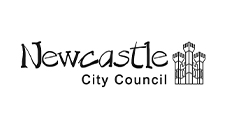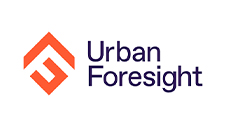Citywide rollout of cashless parking payment services

Scenarios were developed to determine the optimum deployment of cashless technologies across the city.
In 2019, Newcastle City Council’s parking service needed to secure operational savings of £2.5 million over the next three financial years.
A key component of the team’s transformation strategy to secure operational efficiencies, was the development of a fully cashless parking service by April 2023.
The Council’s cashless payment offering comprised card payments for ~800 pay and display (P&D) bays in 2 multi-storey car parks, alongside a telephone payment service (provided by Pay by Phone), covering approximately half of the 6,000 pay and display bays managed by the parking service.
The Council needed to determine the most effective combination of these cashless solutions for the remaining off-street and on-street parking locations.
Solving the problem
Urban Foresight worked closely with the Council’s parking service managers to model scenarios to deploy different cashless technologies across the city.
A digital database was developed to capture the attributes of each parking location, drawn from an extensive set of council documentation, much of it paper-based.
This was supplemented with a comprehensive review of the cost and revenue drivers for each cashless solution.
In combination with location-specific ‘pay and display’ data, Urban Foresight developed a series of scenarios and option combinations to achieve efficiencies and maximise revenues.
Key outcomes
The analysis proved that the optimum blend of cashless technologies was primarily driven by the relative pay and display bay density of each location.
The exercise concluded with the decision to deploy new card payment-enabled ticket machines at a further ten city-centre car parks, optimise the distribution of the remaining ticket machines, and extend the pay by phone service to cover all council-managed pay and display bays across the city.
Over the next five years, the deployment of these technologies is forecast to generate additional revenues worth at least £200,000, whilst enabling operational efficiencies worth a further £400,000 primarily through the reduction of costs associated with cash collection and ticket machine repair and maintenance.
An additional benefit of this exercise was the development of an interactive parking map used to present information visually to support the decision-making process.
To date, the parking service has identified a range of applications for the map, to benefit both the general public as well as operational decision-making.
A beta version of the map is now available via the Council’s website.
Partners
Want to know more about this project?
Similar Stories
Northumbrian Water: Interruption to Supply Risk Mapping using Spatial R Package
Jumping Rivers has worked with Northumbrian Water to develop a tool that identifies the risk of interruption to water supply.
Empowering patients and professionals with transformative technology
A renowned life science enterprise and Monstarlab worked to develop an innovation funnel for the company’s digital app services.
Strengthening data analyst skills to optimise battery systems
Embedding new data science skills into their organisation Working with NICD, Connected Energy...
PYRAMID real-time platform for flood risk assessment
Developing a digitally-enabled environment which benefits policymakers, businesses, communities and individuals
Connected homes as living labs for energy management technologies
55 homes in Newcastle have been fitted with equipment to become living labs for the energy sector.
Helping communities use sensors to solve local issues
SenseMyStreet is a toolkit that enables local communities to commission sensors that collect environmental data about their street.









